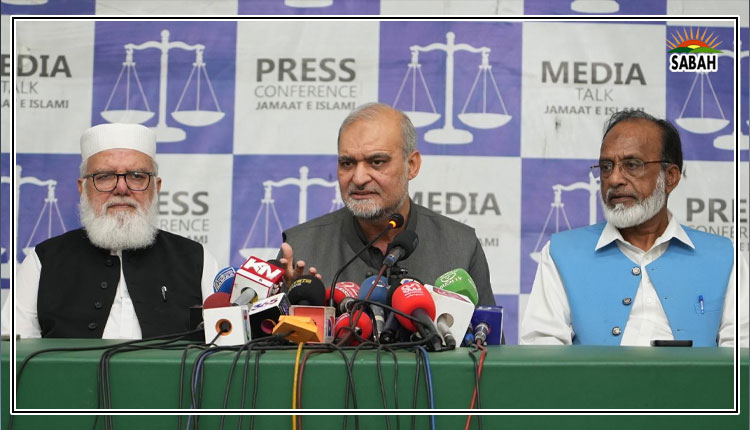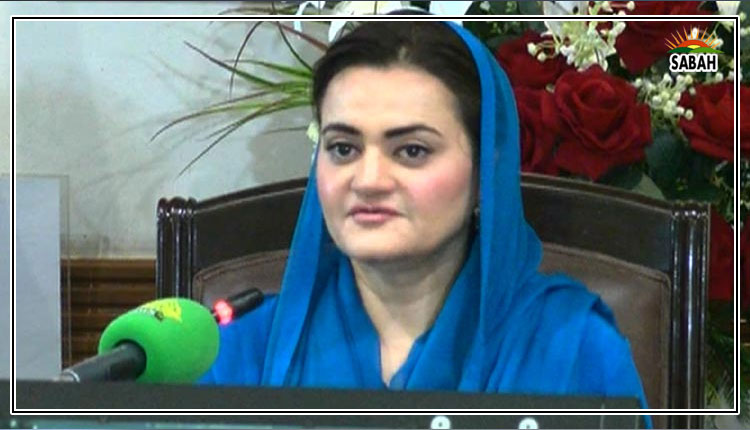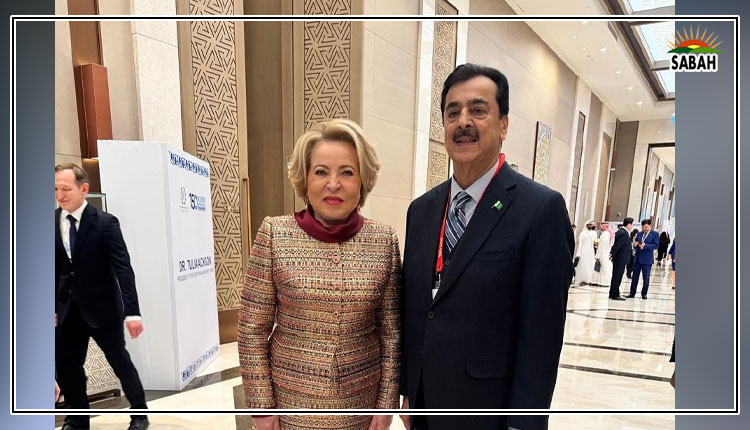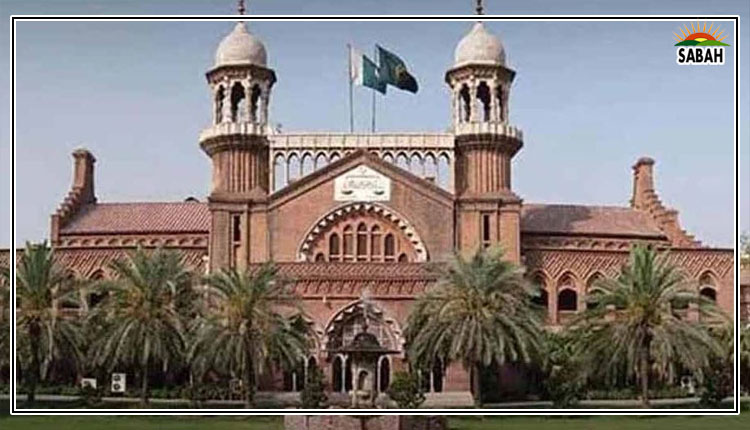Lahore High Court declares Imran Khan’s physical remand verdict in May 9 cases ‘null and void’
ISLAMABAD, July 25 (SABAH): The Lahore High Court (LHC) on Thursday declared a verdict, allowing the physical remand of Pakistan Tehreek-e-Insaf (PTI) founder and former prime minister Imran Khan in May 9 cases, “null and void”.
A two-member bench comprising Justice Tariq Saleem Sheikh and Justice Anwar-ul-Haq Pannu announced the verdict on the petitions challenging the former prime minister’s physical remand.
The high court also declared the notification of the PTI founder’s appearance via the video link null and void.
At the outset of the hearing of the petition against physical remand in the May 9 cases, Justice Pannun asked how many cases the ex-premier was nominated in.
Imran Khan’s counsel Barrister Salman Safdar replied that his client was named in three cases, explaining that there were two “categories” of cases — one where he was nominated by name and the other where he was nominated through supplementary statements.
Prosecutor General Punjab Syed Farhad Ali Shah then presented the record of all cases registered against Imran Khan along with a report of the progress in those cases.
“When the petitioner saw hope that he will get out of jail, you made his arrest in these cases. According to the law, you ought to arrest a suspect as soon as you find out about him. Why did you not arrest him before?” Justice Pannun asked Syed Farhad Ali Shah.
To this, the prosecutor general replied that Imran Khan was on interim bail previously and, hence “could not be arrested”. When the judge asked him if attempts had been made previously to investigate the case, Shah answered, “I can tell you from the record that the PTI founder wrote to us that he will not join the investigation.
“We have reports from PEMRA (Pakistan Electronic Media Regulatory Authority) but the petition is joining the probe,” he added.
Here, Justice Sheikh highlighted that it must be ascertained “whether there was even a need for a remand of these many days”.
Referring to Imran’s refusal to have his polygraph, photogrammetry and voice matching tests, the judge remarked: “If the petitioner does not have any tests conducted, then he will be responsible for its consequences.”
The prosecutor general then informed the court that Imran had submitted in writing that he would have his statement recorded in his lawyer’s presence as he “does not have trust in the police”.
Justice Sheikh then wondered why there was a need for physical remand for a polygraph test. “You have to conduct some tests for 15 to 20 minutes. Why do you need a physical remand for this?” he asked, noting that the “timing of the petitioner’s arrest was important”.
The prosecutor general explained that Imran himself had cited dangers to his life for not appearing in courts. Reiterating that the ex-prime minister was previously on interim bail, Shah said that as soon as an antiterrorism court rejected his bail pleas, the police arrested him in these cases.
“Pemra’s reports are with us. We have to conduct investigation,” the official said.
Here, Justice Pannun asked what the PEMRA reports were, quipping: “If PEMRA calls a girl a boy, it cannot be believed.
“If a political person complains, we have to judge whether his mentality is criminal or not,” he observed.
Justice Sheikh then asked the prosecutor to tell what crime Imran had committed in a certain tweet and under what laws would proceedings be pursued.
When the hearing resumed after a brief break, the prosecutor general presented details of PTI’s social media accounts before the court and read aloud tweets made from Imran’s account. “A specific narrative was concocted,” he asserted.
“Judges are nowadays receiving greater threats than the tweet that you have read,” Justice Pannun remarked.
“Tell me, is ‘vote ko izzat do’ (respect the vote) not a narrative?” he asked the prosecutor. “Saying that [people’s] vote is not receiving due respect due to the army chief is not a narrative,” Shah replied.
At this point, Justice Sheikh asked how it was a crime if the petitioner had called for protests. “If he would have led the attacks, then definitely it would have been a crime,” he observed.
“We will not read what material there is against the petitioner. The prosecutor general himself will have to read,” Justice Pannun remarked.
Here, Justice Sheikh emphasised that the ATC judge should have determined whether a physical remand was even rightful. When the judge asked what section was being applied against the petitioner, the prosecutor replied, “Action will be taken for rebellion under section 121 [of the Pakistan Penal Code].”
Justice Sheikh noted that Section 121 had been struck down by the LHC. The court had last year invalidated Section 124-A of the PPC, commonly known as sedition law.
The prosecutor then argued that a security branch officer had stated that Imran had issued directives to “shut down the country and attack GHQ” in case he was arrested by Rangers or military forces.
Stating that the police investigation would be affected, the official urged the court to dismiss Imran’s petition. “We have yet to recover the mobile phones used to make the tweets,” he said.
“Even if you have to recover items, how will you do that if you cannot move the petitioner out of jail?” Justice Pannun asked.
In his arguments, PTI lawyer Safdar noted that Imran had already secured bail in a case in which a government counsel had recorded his statement that was read aloud today.
“In nine cases, the police kept sleeping for 425 days and in the other three, it was asleep for 170 days,” Safdar quipped.
Subsequently, the bench reserved its verdict on the plea against physical remand.
Justices Sheikh and Pannun also took up Imran’s separate petition against court appearance via video link.
Safdar was present as the ex-premier’s counsel in that hearing as well, where he argued that for physical remand to be granted by a court, the suspect’s appearance in person was necessary.
“There is no such compulsion that the PTI founder cannot be presented before the court,” he stated, highlighting that providing security was the government’s responsibility.
“They are using security as an excuse to deliberately not present the PTI founder for physical remand,” the lawyer claimed. Subsequently, the court set aside the notification allowing Imran Khan to attend case proceedings via video link












